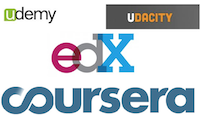
“I Am Offline”: Measuring Barriers To Open Online Learning In The Philippines
Open online learning provides new opportunities for students and teachers. However, research shows that completion rates in open online courses are typically low. This paper presents an empirical analysis of the degree of the barriers to open online learning. The respondents are teachers at the tertiary level in the Philippines who experienced a full distance […]















